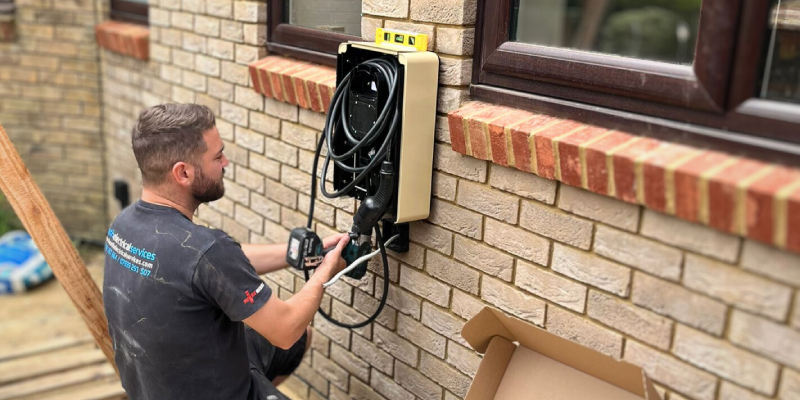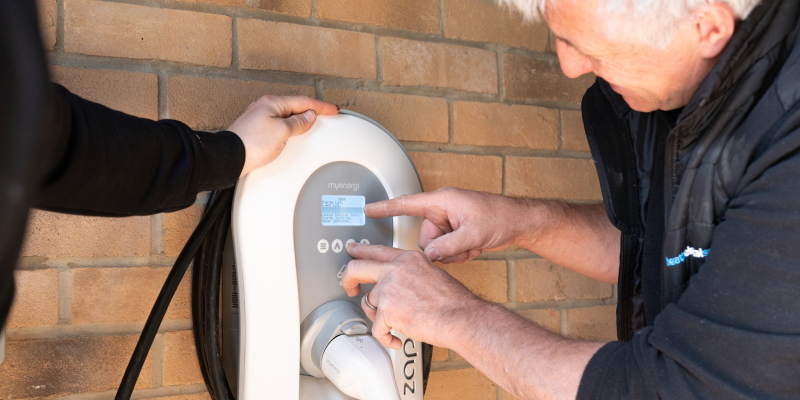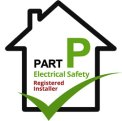If you’re a motorist in the UK, it’ll come as no surprise that electric cars are increasing in popularity each year. Last year alone, 314,687 electric vehicles (EVs) were sold, up 17.8% from the previous year. In just four years, the number of EVs in the UK has increased by almost 1 million, bringing the total number to 1,145,483. It’s evident that the future of the UK’s roads is electric, so if you’re looking to stay in the loop, you’ll need to be clued up on the latest technology. In this article, we’ll be using the expertise of our electricians in Milton Keynes to explain the different EV charger types and the key selling points of each.
The complete guide to EV charger types
One of the main drawbacks of EVs is their recharge time. Even the largest petrol-powered vehicles can be back at full capacity within a matter of minutes, whereas EVs can take hours to recharge. However, with a sound understanding of the EV charger types, you can minimise your time spent out of action and maximise the benefits your eco-friendly car has to offer. Keep reading to learn more about EV chargers at home and on the road.
- What are the different types of EV chargers?
- Which EV charger is best for me?
- Tethered or untethered?
- How are EV chargers installed?

What are the different types of EV chargers?
Currently, there are 2 main types of EV chargers on the market, AC or DC. Within these 2 types of chargers you will find a range of charging speeds available, ranging from 3kW–22 kW AC and 22kW–300kW DC.
AC chargers
You will find AC chargers in both domestic or commercial settings:
- The 13A plug socket charger which have been nicknamed by some as the “Granny charger”, due to their slow nature.
- The 7kW wall/post mounted charger which has a variable charge rate of 3kW up to 7kW depending on how you configure the charger on installation. A typical charge rate of 7kW will give you 28 miles an hour – estimated time of charge will vary depending on the size of your battery.
- The 22kW wall/post mounted charger will be found in commercial settings where a three phase power supply is available. Depending on your batteries capacity it will give a charge rate of 45–80 miles an hour.
DC chargers
Rapid public chargers
Rapid chargers are available at many public charging stations and are especially useful on long journeys. You will find these chargers at some petrol stations and supermarkets/retail parks and most services on the motorway.
There are different types of chargers which offer different speeds of charge rate:
- 75 miles an hour at 50kW
- 150 miles an hour at 100kW
- 225 miles an hour at 150kW
- 375 miles an hour at 200kW
- 525 miles an hour at 350kW
The type of plug your car has will affect the charge speeds you can utilise: CHAdeMO uses 50/100kW where Type 2 and CCS (combined charging system) uses 50/150/250/350kW. If you are unsure what your car can use then refer to the manufacturer’s booklet.

Which EV charger is best for me?
At home, your charging options are limited to 3.6kW, 7kW, and 22kW. In order to determine which type best suits your circumstances, it’s important to assess how you use your vehicle.
3.6kW charger
A 3.6kW wall box charger is small, convenient and faster than a conventional plug socket. It works best for those who mostly use their car for short daily trips and don’t burn through their mile range regularly. Additionally, these chargers are the ideal option for hybrid cars that don’t require as big of a charge as fully electric vehicles. These chargers are the most budget-friendly option; you can expect them to set you back between £350 and £600.
7kW charger
This type of charger is significantly faster than a domestic plug or the 3.6kW alternative. It’s best suited to those who need to ‘refuel’ their car each night. They cost around £400-£1100, plus installation.
22kW charger
Not all houses can accommodate a 22kW charging point because it requires a three-phase electricity supply to work, while most households have a single-phase. That said, it is the fastest EV charger available for home use and can charge a Nissan Leaf from empty to full in just six hours. They cost between £800-1400, plus installation but may be a worthwhile investment for those who travel long distances regularly.
Most offices and commercial businesses will have three phase electrical supply to utilise. This is especially useful for installing multiple chargers for staff/visitors to charge their vehicles. They cost between £800-1400 per charge unit, plus installation.
Tethered or untethered?
In addition to the wattage, you’ll need to consider the functionality of your EV charger. Specifically, you’ll have to choose between a tethered or an untethered charger. Both options have their benefits, and the right choice for your household will depend on your circumstances.
Tethered
A tethered home charger has a non-detachable cable that remains alongside the wall box at all times. Usually, this cable is visible, but many set-ups allow it to be contained inside the box. The main benefit of a tethered charger is that it is less hassle. The cable is ready and waiting whenever you need it and doesn’t involve any set-up. That said, tethered chargers can look bulky and less neat than their alternative. Those who are going for a more minimalistic look to their exterior might prefer an untethered option.
Untethered
An untethered home charger has a detachable cable, so it can be stored away when not in use. This type of charging unit is usually cheaper than a tethered option, but you will need to factor in the costs for a compatible charging cable if you don’t already have one. Untethered chargers are the neater choice and allow for greater flexibility in upgrading your charging cable. However, those with an untethered charger will need to remember their cable whenever they need to recharge and go through the extra step of plugging it in each time.
How are EV chargers installed?
Installing an EV charger is very straightforward when you have off-street parking, as 60% of homes in the UK do. If you do not have off-street parking, you can still install a charger, but the process will depend on your circumstances. Those living in rented accommodation will need permission from the landlord. Similarly, if you own a flat or apartment, you will need permission from the building owner to install a charger.
Any EV charger installation must be carried out by a qualified electrician. If you attempt to install an EV charger on your own, you won’t be eligible for the EV chargepoint grant. Your electrician will begin by conducting a site survey to assess the suitability of your property for a charger. The survey will involve:
- Checking the consumer unit to ensure there is space for another circuit,
- Establishing a route from the charge point to the meter, and
- Assessing the supply parameters of your property are adequate for the load of a new charge point
Following the survey, your electrician will discuss which charger style best suits your property, considering your circumstances, budget, and space. They’ll also help you establish whether you are eligible for the EVHS government grant of up to £350. To qualify for the grant, you’ll need to meet the following criteria:
- Own, lease, or have ordered a qualifying vehicle (new or second-hand)
- Have dedicated, private off-street parking at the property
- Claim only one chargepoint per vehicle
- Purchase an EVHS-approved charger
- Use an EVHS-approved installer
Your electrician will carry out all the necessary drilling and wiring to run the cable from the consumer unit to the EV charger location. Once everything is in place, they’ll mount the EV charger to the wall and bolt it into a secure enclosure. The installation process typically takes 2-3 hours to complete, and your charger will be fully functional immediately. For more information, check out our full article on EV charger installation and learn how our electricians in Northampton can help households and businesses maximise their EV potential.
Time to go green?
If you’re looking to join the EV revolution, there’s never been a better time. Advancements in technology and government incentives have been enough to convince millions already. For more information regarding EV chargers or to move forward with installing your own, don’t hesitate to get in touch with the Heath Electrical Services team. Our highly skilled electricians in Bedford have installed countless EV chargers over the last decade and are expertly placed to help you make the switch.













